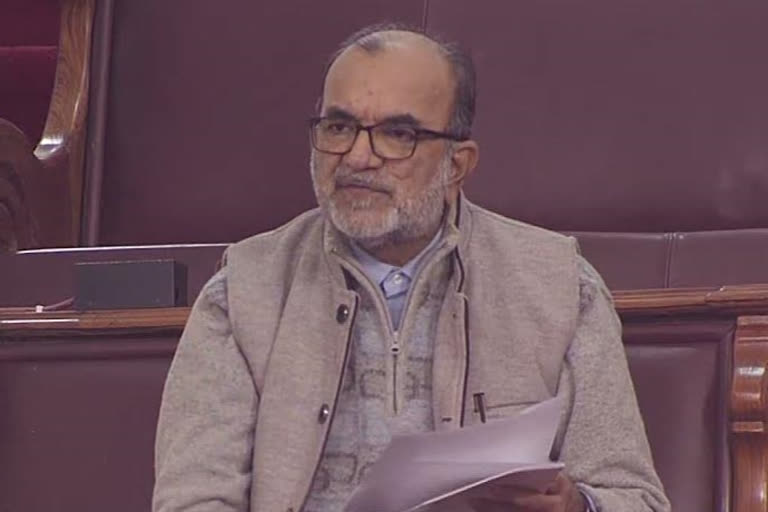New Delhi: A private member bill to regulate the appointment of judges to the High Courts, as well as the Supreme Court, was introduced on Friday in the Rajya Sabha by CPI (M) MP Bikash Ranjan Bhattacharya. The National Judicial Commission Bill, 2022, was introduced after a majority of voice votes were in its favour.
The Bill, if approved, will also regulate the transfers, lay down judicial standards and provide for accountability of judges, as well as 'establish credible and expedient mechanism' for individual complaints for misbehaviour or incapacity of a judge. It also proposes the presentation of an address by Parliament to the President in relation to proceeding for the removal of a judge and for matters connected therewith or incidental thereto.
As per submissions made in the Bill
- The National Judicial Commission Bill (NJAC) would be a body comprising the Chief Justice of India (chairperson, ex-officio), two other senior-most Supreme Court judges (ex-officio member), Law Minister(ex-officio member) and two eminent persons (to be nominated by a committee consisting of CJI, the Prime Minister and the Leader of the Opposition in the Lok Sabha) among whom at least one person would have to be nominated from SC/ST/minorities/women category.
- The body would be responsible for the appointment and transfer of judges and would replace the existing collegium system, which is led by the CJI and comprises four senior-most judges of the Apex Court, who recommend names for elevation and transfer to the government.
- The Centre would make a reference to the NJAC as and when a vacancy arises. In case of a vacancy arising out of the completion of the term, a reference would be made to NJAC six months in advance, and in case of vacancies due to death or resignation, a reference would be made within 30 days of its occurrence. The NJAC would appoint the senior-most judge of SC as the CJI, as well as other SC judges, the Chief Justice of High Courts and HC judges. It shall also make recommendations for the transfer of judges.
- If two NJAC members do not agree to a recommendation, the person will not be appointed.
- President can ask the NJAC to reconsider the recommendation and in case of a unanimous decision by the NJAC President have to appoint the person concerned.
Before this, the last time the Bill was introduced was back on August 11, 2014, by the then Law Minister Ravi Shankar Prasad, following which it was passed in the Lok Sabha on August 13 and in the Rajya Sabha on August 14. However, it was challenged in the Supreme Court and was subsequently struck down by a five-judge Constitution bench on October 16, 2015, with a 4:1 majority.
Also read:SC rejects plea seeking copies of 2018 Collegium agenda, decisions, resolution
The bench, at the time, comprised Justices Madan Lokur, JS Khehar, Adarsh Kumar Goel, Jurian Joseph and Jasti Chelameswar. Justice Chelameswar was the sole dissenter on the bench, and went against the majority opinion, and the subsequent ruling, that NJAC was 'unconstitutional' and that it violated the "basic structure of the Constitution".
